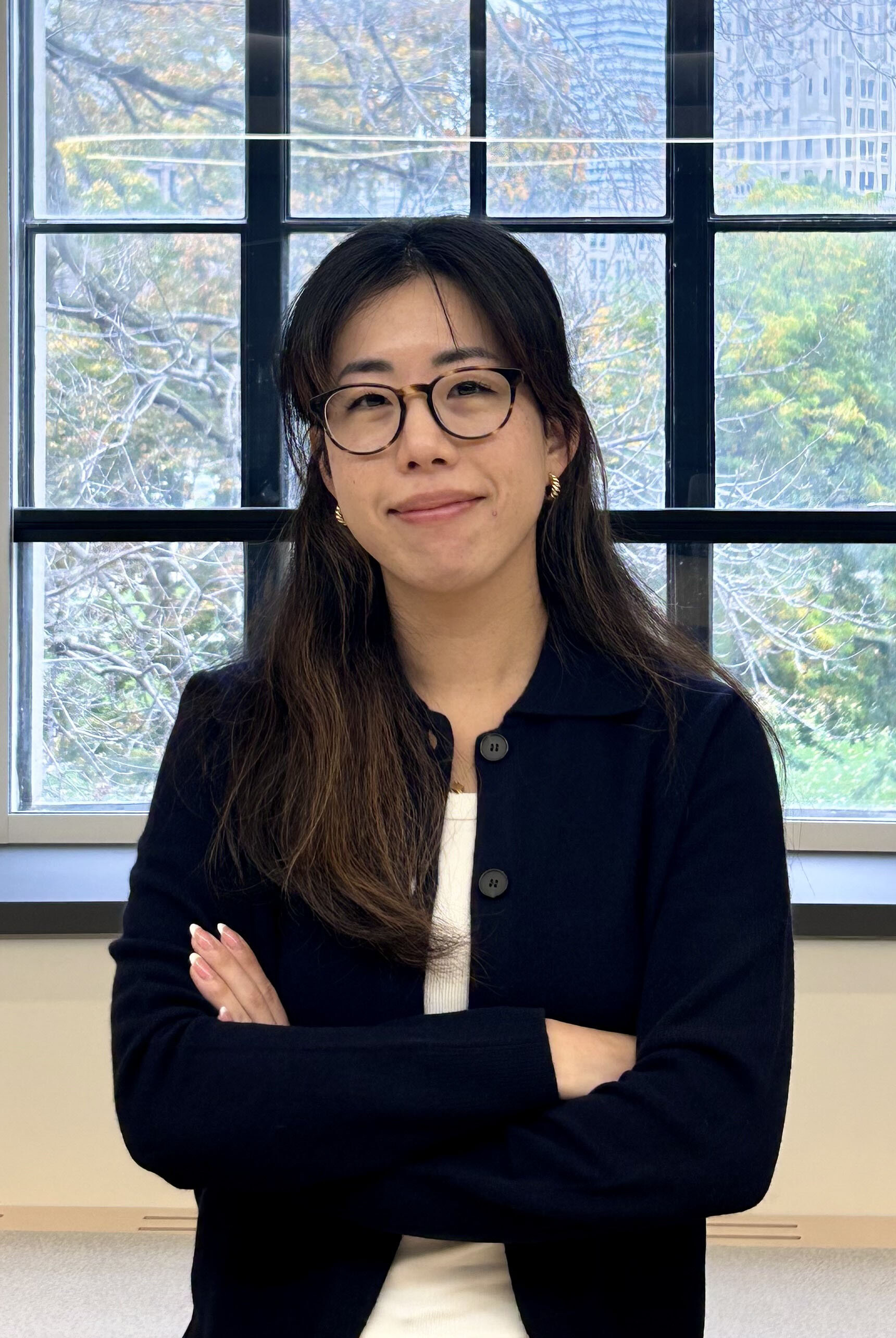Main Second Level Navigation
- Welcome
- Why Toronto?
- History of the Department
- Vision & Strategic Priorities
- Our Leadership
- Our Support Staff
- Location & Contact
- Departmental Committees
- Department of Medicine Prizes & Awards
- Department of Medicine Resident Awards
- Department of Medicine: Self-Study Report (2013 - 2018)
- Department of Medicine: Self-Study Report (2018 - 2023)
- Communication Resources
- News
- Events
Get to know our Manager of Academic Programs (Subspecialty)

Sarah Jung, Manager of Academic Programs (Subspecialty) in the Department of Medicine (DoM), plays a pivotal role in ensuring the department’s subspecialty residency and fellowship programs run smoothy.
She started working at the University of Toronto (U of T) in the Department of Dentistry, initially as a Project Officer and later as a Manager, prior to joining the DoM in April 2020. However, transitioning into a new role during the peak of the Covid-19 lockdowns presented several challenges.
“This is healthcare, so the pandemic directly impacted all our rotations, our service and our culture. We really had to scramble to adjust during that time,” she says.
As the Manager of Academic Programs, Sarah’s major responsibilities include overseeing residency programs, divisions and strategic educational initiatives, as well as working closely with the Program Coordinators to ensure operational requirements are met. She also works with the finance team to manage financial processes for her programs.
“I think management is one of those roles where you have to value the people aspect of an organization,” she says. “You really have to like working with people, and thankfully, my team is great. Getting to work with them and support them is one of the most rewarding parts of my job.”
Sarah also works with the Vice-Chair of Education, Dr. Arno Kumagai, to lead the education portfolio and determine how the department can implement initiatives that will make everyone’s lives easier. One such project is Online Rotation & Base Hospital Scheduling (ORBS), a program that took the department five years to create and implement. The internal medicine residency program is now receiving requests from other divisions and departments to see if they can develop something similar.
“It came from a simple problem that we were trying to fix and then we had the idea to build something like ORBS, and to now see it in action is really rewarding,” she says.
One challenging element of Sarah’s role is the always changing, fast-paced healthcare landscape, which requires her to be responsive and able to adapt. From things like COVID-19 to curriculum and staffing adjustments, the needs of the department can change quickly, which keeps her on her toes. The shift to hybrid work since the pandemic has also changed the way she manages her team.
Sarah’s path to academic medicine was not a linear one. She initially pursued an undergraduate degree at Queen’s University with a major in English literature and a minor in political science.
“I love reading books but I felt as though I was living in my head. Like if I could read all day, that’d be amazing, but I also need to be rooted in something with a little more reality,” she says.
After graduating, Sarah completed an editorial internship with Nylon Magazine in New York. However, the rapid shift to digital publishing prompted her to rethink her career.
“I just didn’t see it being the same now that everything was digital,” she says. “You weren’t going into office buildings dedicated to a magazine anymore, so that changed the culture of the work.”
It was a healthcare administrator on the TV show House that initially sparked Sarah’s interest in healthcare, though the idea seemed far-fetched compared to her editorial background. But then she got her feet wet as a Project Officer in the Faculty of Dentistry, and later completed her Master's in Higher Education at U of T.
Joining the DoM provided her with a new challenge – bridging the university and affiliated hospitals.
“I think that the university recognizes medicine as often being at the forefront of change and the interesting part for me was how the DoM operates as part of the university, but we also work closely with the hospitals to meet their needs,” says Sarah.
Outside of work, Sarah enjoys reading and molding clay. Unlike those who enjoy using a wheel for pottery, she prefers just using her hands.
“I'm that one person in the class where everyone wants to get on the wheel and I'm like, ‘I'll be in my little corner sandbox here,’” she jokes.
Running and walking are other ways she likes to recenter herself and decompress. While she enjoys pushing herself physically, she avoids focusing on statistics or personal records, preferring to simply enjoy the experience.
“I also love to hike and my colleagues sometimes joke about how I was carrying the department during our step challenge. You should have seen my steps!” she says.
The Colombian Lost City Trail takes the lead as the toughest hike Sarah’s ever done, where she spent four days in the rainforest mountains. Despite the challenge, she would love to do it again if the opportunity presented itself.
Additionally, Sarah was honoured to be invited to mentor in the Temerty Faculty of Medicine Mentorship Program. Though she was initially uncertain about being a younger mentor, she realized that mentorship doesn’t always have to be hierarchical.
“It can also be two colleagues just sharing what they know,” she says. “Seeing my mentee get to where she wanted to be and knowing I was able to help her in that journey is an accomplishment I’m proud of.”
